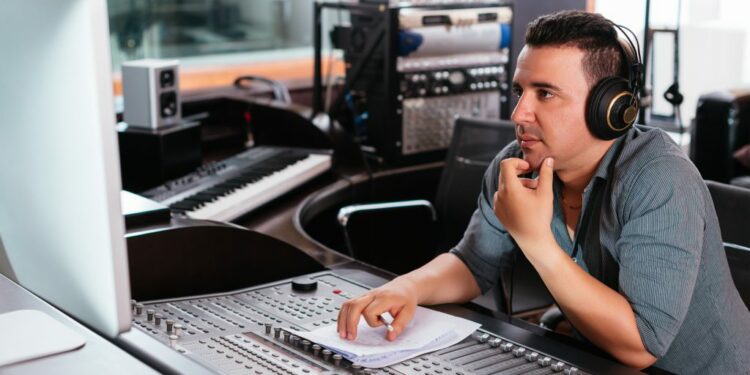Despite the myth that only those with intrinsic musical talent should work in the music industry, which is held by many parents and people in general, anyone can study music. Therefore, learning music production is a great method to enter the industry if you have a passion for music.
Enroll in a master’s in music production degree in London to continue developing your talents. These programmes include vital modules in studio management, live performance sound production, recording, equipment setup, and other areas. They also cover a wide range of subjects that are pertinent to the making of music.
Since you can watch your ideas come to life, music producing is one of the most enjoyable careers. You must distinguish yourself as a music producer because it takes time to develop a devoted following.
Who is a music producer?
Music producers make ensuring that tracks are professionally produced and recorded. A music producer is well-versed in all facets of studio production and has a broad understanding of how voices and instruments contribute to the creation of recordable sound.
The duties are quite like those of a film director, who is responsible for supervising every aspect of the production in the hopes of creating a hit. They collaborate closely with sound engineers as well.
The primary responsibility of a music producer is to supervise the entire album production process, collaborating with sound engineers, music managers, songwriters, and performers to foster an enriching environment where everyone can contribute to the creation of an exciting album.
Most significantly, the producer is responsible for giving a song the sound it needs to have in order to compete in its industry.
Is a Sound engineer important for music production?
While a music producer usually has all skills necessary for producing a hit album, a successful music producer would prefer to closely collaborate with a sound engineer.
To collect and generate the audio for songs or entire musical albums, sound engineers, also known as audio engineers, collaborate with musicians and music production teams. They frequently use advanced machinery that calls for technical know-how and expertise to operate in order to produce the audio heard in music albums and movie soundtracks.
Sound engineers are primarily concerned with the technical elements of employing audio recording hardware and software to capture audio and sound effects.
Can a sound engineer become a music producer?
In the technical aspects of music creation, sound engineers are extremely competent and understand exactly how to generate and modify sounds to obtain the desired result for both the producer and the performer.
There aren’t many sound engineers who can also be music producers, even though many music producers are skilled sound engineers and are familiar with that aspect of the production process.
Since they oversee the team that is producing the track or album and setting the artistic direction of that composition, the producer assumes a far more creative and managerial function.
Music producers and sound engineers have very different roles in the recording studio, even though some of their responsibilities overlap. However, all roles are crucial to the creation of music!
So why are you still waiting?
Enroll in a music production programme to get started creating music right away!



































































